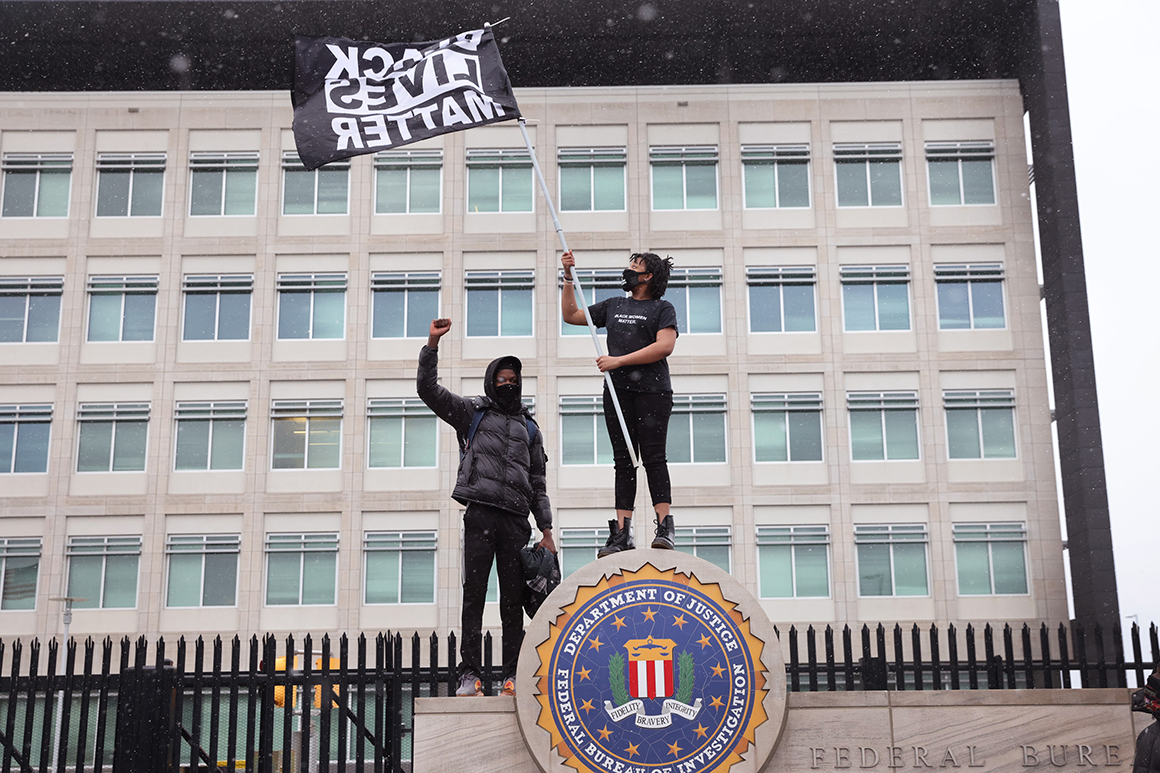
Back in 2009, policing in America was not the hot-button issue it is today. Obama’s first attorney general, Eric Holder, launched his first pattern-or-practice investigation in March of that year. It was a probe into Maricopa County (Ariz.) Sheriff’s office for reports of discriminating against Latinos and violating federal immigration laws. It would be several months before Holder would open one into New York’s Suffolk County Police Department for failing to investigate crimes committed against Latinos by whites and for dissuading Latinos from seeking help from law enforcement.
In Garland’s case, there’s some evidence DOJ was anticipating the reversal in policy — and had already laid the groundwork to move quickly in case the new attorney general was ready to start cracking down.
In background briefings with reporters in recent weeks, current Justice Department officials who requested they not be named said that career attorneys in the Special Litigation Section had been collecting data and materials to recommend to top brass to launch a probe in Minneapolis.
The officials declined to elaborate on how long staff attorneys had been looking into the matter, when the recommendation was made or whether Trump administration officials had rebuffed earlier requests.
But several former Justice Department officials interviewed for this story observed that the speed at which the DOJ was announcing the probes and charges likely meant the preliminary work had started under the previous administration.
Some suggested these cases were teed up by career attorneys to have them ready for when Biden administration appointees arrived — Garland in March, and Vanita Gupta, the former head of the Civil Rights Division during the Obama administration, as associate attorney general shortly thereafter.
“It could be that they had been looking into [these cases] since last year, but only got an administration that’s going to proceed, recently,” said Ed Caspar, senior counsel for the nonpartisan Counsel for Lawyers Committee for Civil Rights Under the Law. He worked in the Civil Rights Division under Presidents George W. Bush and Barack Obama.
It is possible too, Caspar added, that the Trump appointees at the department could have deferred the final decision on these recent cases to the incoming Biden appointees. In either scenario — career attorneys waiting for a regime change at the department or outgoing appointees allowing Biden officials final say — the decision landed neatly in Garland’s lap.
“So when April comes around … Merrick Garland is approved, then it’s like, well, a raft of cases that are ready to go. And now that you’re in place, can we have your stamp of approval?” Caspar said, describing a possible scenario of how the approvals were handled. “He is in a position to say ‘yes.’ And so you have stamp, stamp, stamp. All of a sudden you have this whole raft of cases approved all at once.”
The Justice Department did not respond to repeated requests for official comment.
DOJ officials who did speak to POLITICO requested they not be named because they were not authorized to go on the record. They stressed that prior to Floyd’s killing, teams in Minneapolis were already conducting outreach to the community groups for help with their investigation. Those contacts expanded after his killing was captured on cellphone video and went viral last year, the officials said.
Related posts:
Views: 0
 RSS Feed
RSS Feed

















 May 25th, 2021
May 25th, 2021  Awake Goy
Awake Goy  Posted in
Posted in  Tags:
Tags: 
















